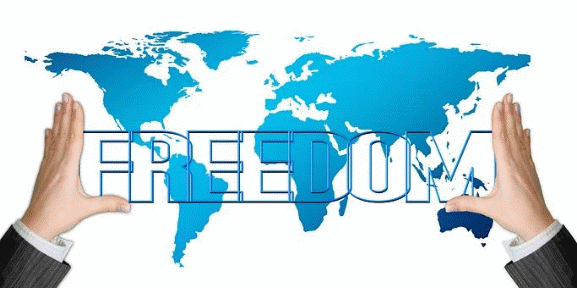About National Human Trafficking Awareness Day

On January 11, National Human Trafficking Awareness Day raises awareness of a crime that has a lasting impact on people's lives, families, and communities all around the world.
Every January since 2010 has been designated as National Slavery and Human Trafficking Prevention Month by Presidential Proclamation. With the assistance of non-governmental organizations, National Human Trafficking Day was established after the beginning of National Slavery and Human Trafficking Prevention Month and is observed every year on January 11.
Slavery in the modern day is thought to take the form of human trafficking. The use of coercion, deceit, or force to get labour or sex constitutes this unlawful crime. Traffickers entice their victims into circumstances where they are being trafficked by using violence, deceit, or false promises. Victims of trafficking frequently endure physical and/or mental abuse. In addition, they might experience isolation from the outside world, starvation, threats against family members, and sexual abuse. Threats may also be directed toward the victim's family members.
Informational Facts about Human Trafficking
Human trafficking has an impact on every nation in the world, whether they are countries of origin, transit, or destination, or even all three.
Trafficking frequently takes place between less developed and more developed nations.
Although long-distance trafficking does happen, national or regional trafficking predominates.
While victims from Asia are trafficked to a wider variety of locations, victims from Europe are sent to a wider variety of locations.

The most typical type of human trafficking is by far sexual exploitation, such as sex trafficking. The most obvious is it. Underreporting exists for several types of exploitation.
Women make up a disproportionately large part of those involved in human trafficking, both as perpetrators and victims.
People whose nationality is the same as that of their victim typically commit trafficking.
Agriculture, construction, apparel and textiles, catering and restaurants, domestic work, the delivery of healthcare services, entertainment, and the sex industry are the industries with the highest rates of trafficked forced labour.
Trafficking is a Problem.
Trafficking is the process of transferring a person, usually a child, into the hands of someone who will use them in sexual or labor exploitation.
What are the Different Types of Trafficking?
There are four main types of trafficking:
• Human trafficking,
• Sex trafficking,
• Labor trafficking,
• Child abduction.
What is the Treatment Gap?
The treatment gap refers to the yawning chasm that exists between how well different countries deal with trafficking victims and those who suffer from it. Currently, there is no effective national strategy to combat human trafficking and traffickers typically exploit victims through various means including physical force, threats of violence, fraud, and coercion.
How to Get started in the fight against Trafficking.
There are a number of ways to learn more about trafficking. One way is to visit the website, Trafficking in Persons, which provides information on the realities of trafficking and how you can help end it. You can also start an online petition or organization campaign to raise awareness about the problem.

Start a campaign to End Trafficking.
To fight traffic, you’ll need to organize and participate in campaigns and activities that target specific areas of the country where trafficking is strongest. This includes working with local organizations that focus on ending trafficking, as well as participating in anti-trafficking rallies and protests. You can also find resources like anti-trafficking pamphlets or videos at libraries or other public places.
Spread the word about trafficking.
One way to get people talking about Trafficking is by sharing information about it online or in social media posts. You can also promote free anti-trafficking films at movie theaters or events, or write articles and blog posts exposing the hidden world of human traffickers. By being proactive and sharing information about Trafficking, you can help create a shift in public opinion that will lead to its eventual elimination.
Get involved in trafficking-related activities.
In order to be effective against trafficking, individuals need to become involved in activism related to their goals of stopping it. There are many ways to get started: joining a support group for victims of human trafficking, writing letters to your congressperson defending workers’ rights who are trafficked, protesting against human smuggling laws that don’t take into account sex worker rights, supporting research projects that focus on ending human trafficking and even if your activism doesn’t have direct personal implications for trafficked people!
Tips for Successfully fighting Trafficking.
There is no one way to fight traffic, and each person must do their part to prevent it. One of the best ways to start your fight is by following the law. The Trafficking Victims Protection Act (TVPA) provides federal law enforcement with resources and support to help identify, investigate, and prosecute traffickers.
Protect yourself and your loved ones.
If you know someone who is being exploited or trafficked, don’t let them become a victim. Do everything you can to protect them both: keep them informed of the law, stay safe while they are away from home, and get them to help if they need it.
Don’t be a victim.
Don’t be lured into slavery or trafficking by any offer of free clothing, money, or other gifts. If you feel like you are in danger or that something valuable is being taken from you, report it immediately to authorities. And remember: never give up your dignity or autonomy let anyone tell you otherwise!
Conclusion
Trafficking is a problem. It's important to start fighting against trafficking as soon as possible in order to protect yourself and your loved ones. By following the law, protecting yourself, and not being a victim, you can make a large impact in stopping this heinous crime. Thanks for reading!











